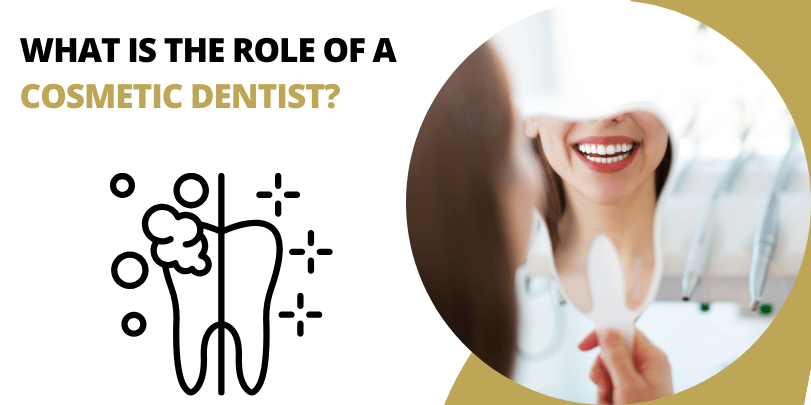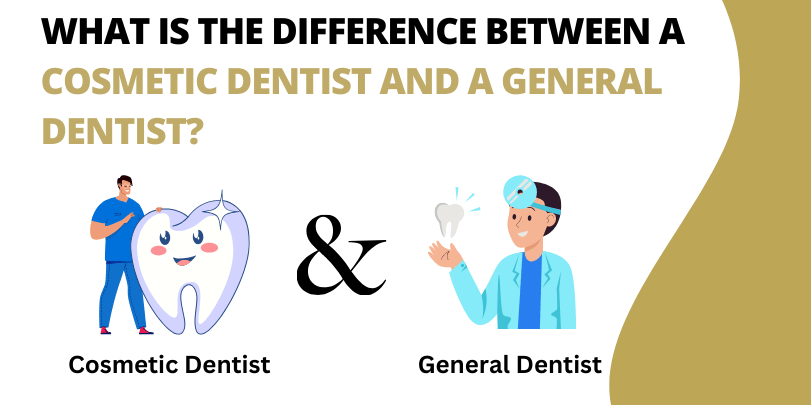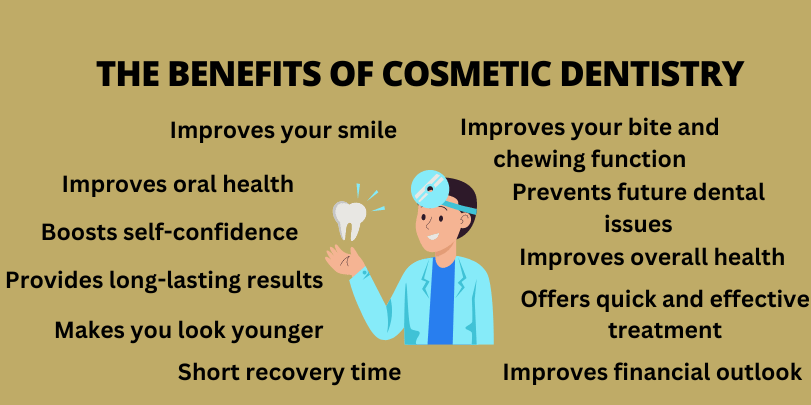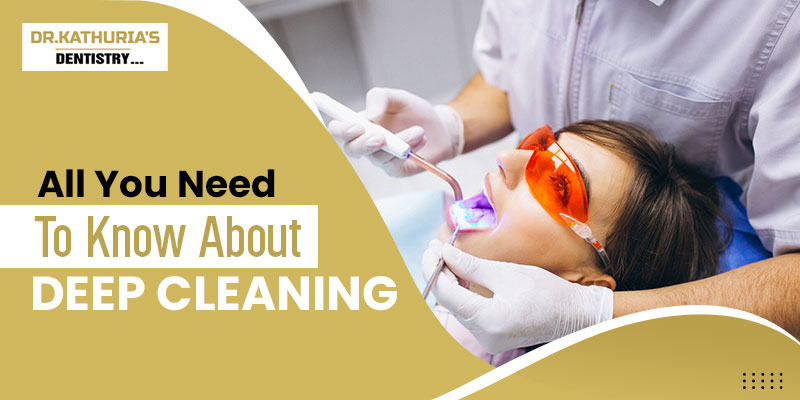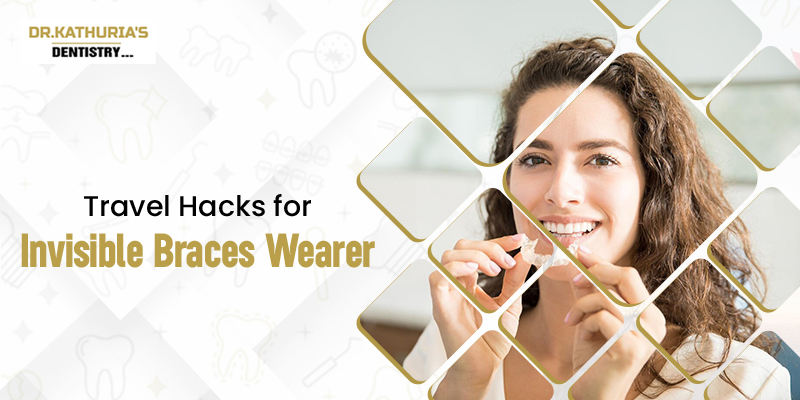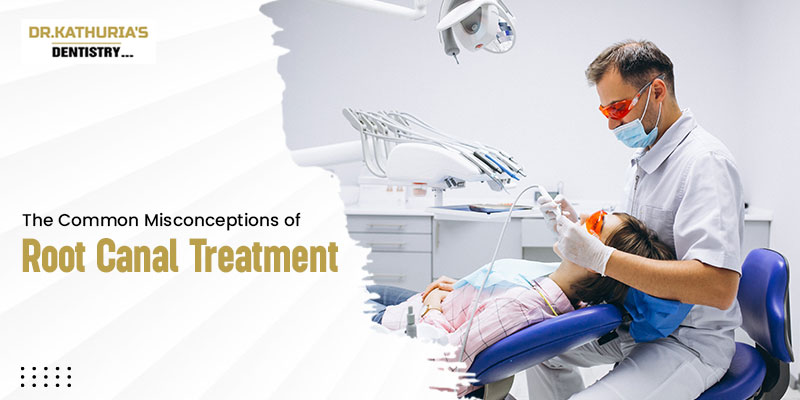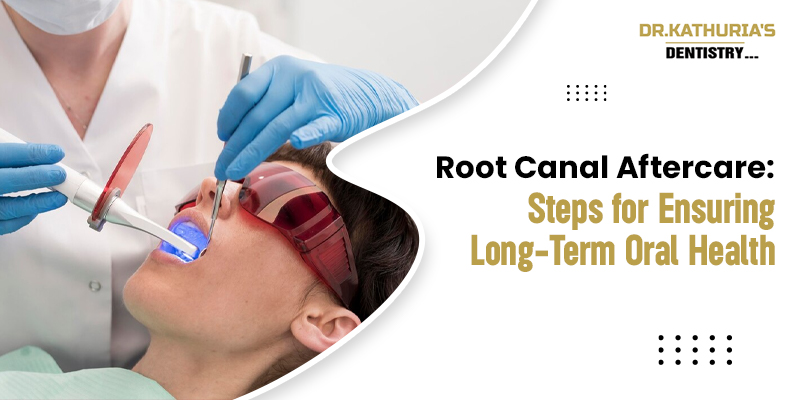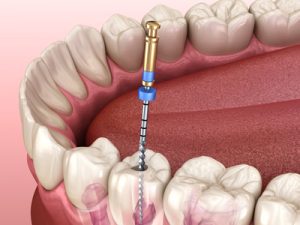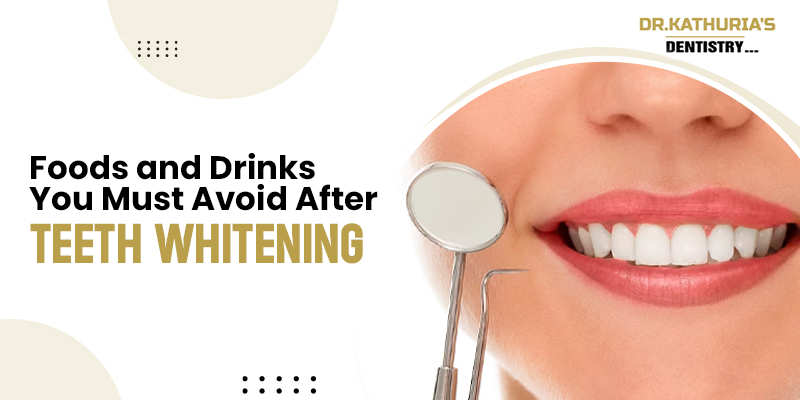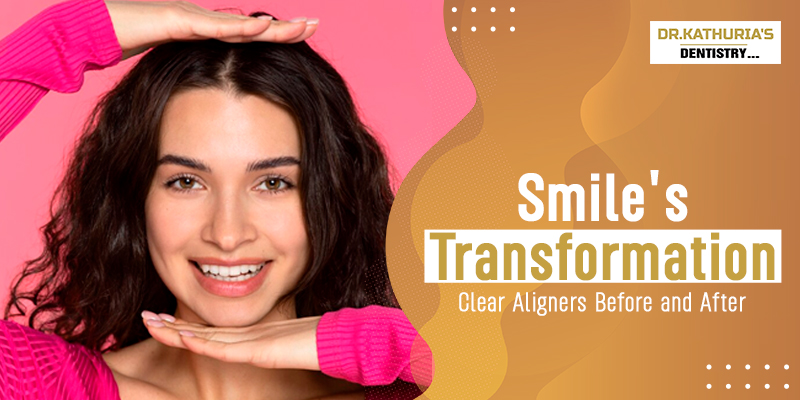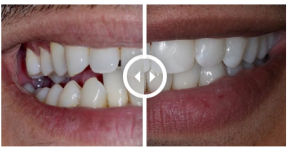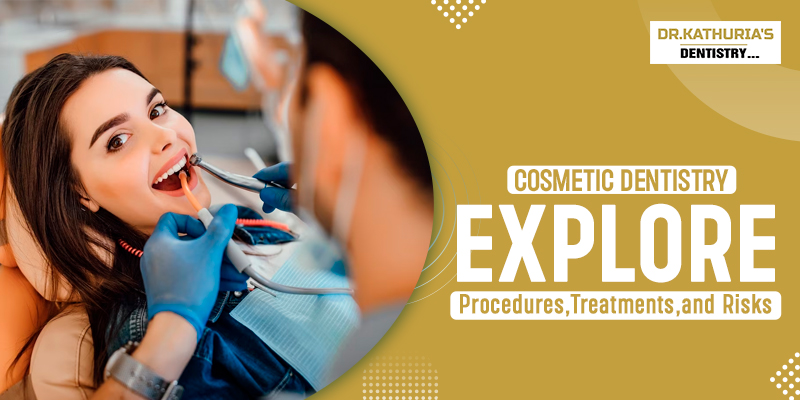Cosmetic dentistry has become increasingly popular in recent years, thanks to advancements in technology and a growing interest in aesthetic improvements. People dissatisfied with their smiles now have more options than ever before to enhance the appearance of their teeth, gums, and overall smile. Cosmetic dentists play a pivotal role in this transformation, offering a range of procedures that can restore confidence and improve both oral health and aesthetics. The cosmetic dentistry industry is projected to reach $32 billion by 2026, highlighting the increasing demand for these services.
Table of Contents
What Does a Cosmetic Dentist Do?
A cosmetic dentist specializes in improving the appearance of your teeth, gums, and smile. While general dentistry focuses on preventive and restorative treatments, such as fillings and crowns, cosmetic dentists concentrate on enhancing the visual appeal of your teeth. Whether you have discoloured, chipped, or misshapen teeth, cosmetic dentistry can help address these concerns through various procedures.
Here are some common procedures offered by cosmetic dentists:
- Teeth Whitening
One of the most popular and affordable cosmetic dental treatments is professional teeth whitening. Over time, teeth can become stained from certain foods, drinks (like coffee and tea), medications, or habits such as smoking. A cosmetic dentist can provide professional whitening services, which are far more effective than over-the-counter products. These treatments can brighten your teeth by up to 5 to 8 shades, offering a noticeable improvement in a short time. - Dental Veneers
Dental veneers are thin, custom-made shells designed to cover the front surface of your teeth. Made from medical-grade porcelain, resin, or ceramic, veneers can conceal a wide range of cosmetic issues, including chips, cracks, gaps, and discolouration. Veneers are bonded to your teeth after a small amount of enamel is removed, allowing for a natural appearance and improved symmetry. - Dental Crowns
Also known as dental caps, crowns are used to cover damaged or decayed teeth. These crowns not only strengthen weakened teeth but also improve their appearance, covering up any irregularities. Crowns are often recommended after root canals, large fillings, or to improve the appearance of severely discoloured or misshapen teeth. - Inlays and Onlays
For teeth that are too decayed for traditional fillings, inlays and onlays (indirect fillings) offer a more durable solution. Created in a dental lab, these fillings are bonded to the tooth to restore its structure and function. While inlays fill the centre of a tooth, onlays cover a larger portion of the tooth, even extending to the cusps. - Dental Implants
For patients who have lost a tooth due to decay or injury, dental implants are a long-lasting solution. Implants involve placing a titanium post into the jawbone, which serves as a base for a replacement tooth. Over time, the implant integrates with the bone, providing a stable and natural-looking replacement. - Dental Bonding
Dental bonding uses a tooth-coloured resin to fix minor cosmetic issues, such as chips, cracks, or gaps. The resin is applied, shaped, and hardened with ultraviolet light, creating a natural-looking solution. Bonding is a quick and affordable alternative to veneers or crowns for minor aesthetic problems.
Also Read – Difference Between a Cosmetic Dentist and a General Dentist?
Reasons to See a Cosmetic Dentist
There are numerous reasons why people might seek out a cosmetic dentist, including:
- Tooth decay
- Discolouration
- Crooked or misshapen teeth
- Missing teeth
- Cracks and chips
Cosmetic issues can affect not only your appearance but also your confidence and ability to eat or speak comfortably. According to a 2022 survey by the American Dental Association, around 25% of adults avoid smiling due to dissatisfaction with the condition of their teeth and mouth. Cosmetic dental procedures can restore both your smile and self-esteem.
Who Can Benefit from Cosmetic Dentistry?
Anyone with healthy teeth and gums can benefit from cosmetic dentistry. However, if you have cavities or gum disease, those conditions will need to be addressed before undergoing cosmetic treatments. Once your oral health is in good shape, you can explore different options to enhance your smile.
Some common concerns cosmetic dentists can address include-
- Stained or Discolored Teeth– Teeth whitening or veneers can dramatically improve the brightness of your smile.
- Chipped or Cracked Teeth– Bonding or veneers can repair these minor imperfections.
- Gaps Between Teeth– Veneers or bonding can close gaps and create a more uniform smile.
- Misshapen Teeth– Dental contouring or veneers can reshape your teeth for a more balanced look.
Recovery and Outlook
The recovery time for cosmetic dental procedures varies depending on the treatment. For example, teeth whitening and bonding are relatively quick, with minimal downtime. In contrast, procedures like gum contouring or dental implants may require a few days of recovery. Your cosmetic dentist will provide specific aftercare instructions to ensure you achieve the best results.
Conclusion
Cosmetic dentistry is about more than just aesthetics—it can have a profound impact on your quality of life. With treatments that can enhance your smile, correct imperfections, and boost your confidence, cosmetic dentists provide more than just superficial changes. Many procedures, such as crowns or implants, also improve oral function, helping you chew and speak better.
If you’re considering cosmetic dentistry, it’s important to consult with a qualified cosmetic dentist to discuss your goals and determine which treatments are best suited for you. By choosing the right procedure, you can enjoy a brighter, more confident smile for years to come.
Written by DR. PUNEET KATHURIA B.D.S., M.D.S., F.I.C.O.I. (USA)
 Australia No
Australia No Canada No
Canada No India Toll Free No
India Toll Free No UK No
UK No USA No
USA No






